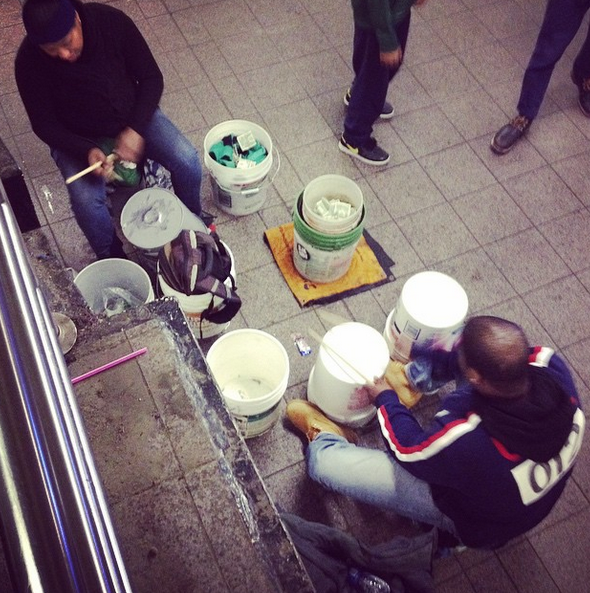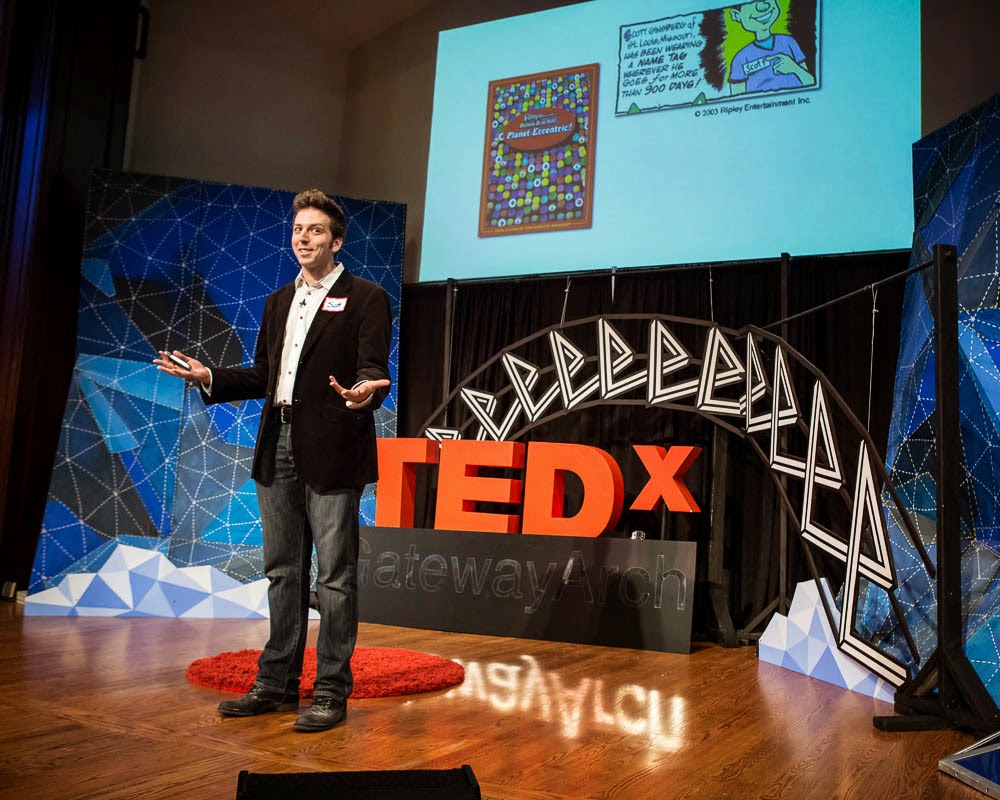

All creativity begins with the moment of conception.
That little piece of kindling that gets the fire going. That initial source of inspiration that takes on a life of its own. That single note from which the entire symphony grows. That single spark of life that signals an idea’s movement value, almost screaming to us, something wants to be built here.
And so, in this blog series, I’m going to be deconstructing my favorite moments of conception from popular movies. Each post will contain a video clip from a different film, along with a series of lessons we can learn from the characters.
Today’s clip comes from the Miles Finch scene in Elf:
Established parcels of structured curiosity. Clancy famously said that if we don’t write
it down, it never happened. That mantra has governed my creative work for more
than a decade. Thanks to his warning, everything I know is written down
somewhere. Of course, that’s only half the work. Because if you don’t organize what you write down, it never
happened either. That’s why I’m ruthless when it comes to my content management
system. I treat my notes and files and ideas as a literal inventory. The
lifeblood of my production facility. The chief asset of my creative factory.
And as such, that inventory requires dedicated, daily management. One of the
practices I’ve found to be most useful is called walking the factory floor. It’s
a casual and thoughtful perusing of every idea I’ve recently accumulated. An
established parcel of structured curiosity. A ritual keeps me in tune and in
touch with all of the raw materials coming into my production process. Because
frankly, I take so many goddamn notes on a weekly basis, there’s no way my
brain could cope with that much inventory on its own. That’s why I created a
system for extending the mind. A trusted process that does the heavy lifting
for me. One that allows me to inspect my ideas alphabetically, chronologically
and thematically. And a result, I gain an objective view of what my mind really
wants to produce. Are you the foreman of
your idea factory?
No tomatoes,
too vulnerable. Finch has written more classic children’s book than any
other author. He may be four feet tall, but in the children’s literature
business, he is a monster. And so, for the right price, he’s willing facilitate
a five hour brainstorming session with the editorial team to help them concept
their next bestseller. The only problem is, he’s temperamental. He demands
first class treatment. And when he doesn’t get it, he storms out of the
meeting, telling the team to kiss his vertically challenged ass,
unintentionally leaving behind his notebook of genius ideas. Bad move, angry elf. That’s your
creative inventory. Your incubator of brilliant book ideas waiting to mature.
And because you couldn’t manage your emotions, you made you intellectual
property as vulnerable as a tomato. That can be a scary thing for a creator,
not having access to your own ideas. That’s why I back up my inventory on the
cloud, on my website and on an external hard drive. It’s too important. I’ve
worked too hard organizing my thoughts to make them vulnerable to loss, theft, damage or mysterious disappearances. And so, this
scene is a reminder to all creative professionals. Be vigilant about your
intellectual property. Because when you make a living by your wits, you have to
guard your mind like the asset it is. How could you turn your intellectual capital
into a software program or web app?
Piracy is a gift. When someone plagiarizes us, we shouldn’t send a
subpoena, we should send a fruit
basket. Piracy is a compliment. It’s a reminder that what we’ve
done is worth copying. And it’s validation that we’re good enough to be a
target. Because nobody steals crappy art. Statistically, work that is
successful will always have a higher piracy rate. Not a bad goal to shoot
for. Besides, being stolen from is inevitable. Piracy is just one of the many
punches you have to learn to roll with. It’s part of the job description. Hendrix
even said that he’d been imitated so well that he heard people copy his
mistakes. How cool is that? Green Day made music history by becoming the first
band to sell blank albums. Since millions of their fans were illegally
downloading their music anyway, the band released a five pack of blank compact discs
with original album cover art printed on the top and sides of the box. And on
the side of the case, they reminded their fans, burn responsibly. Armstrong just figured, hey, kids are going to
copy, burn, download and rip our music anyway, may as well make the records
look cool and make some money in the process. Years later, their band was voted
as one of the top one hundred greatest bands of all time, and will soon be
inducted into the rock and roll hall of fame. I’d say piracy was the best thing
that ever happened to their art. Would you rather have a piracy problem or
an obscurity problem?
LET ME ASK YA THIS…
What did you learn from this movie clip?
LET ME SUGGEST THIS…
For a copy of the list called, “11 Ways to Out Market Your Competitors,” send an email to me, and you win the list for free!
* * * *
Scott Ginsberg
That Guy with the Nametag
Author. Speaker. Strategist. Inventor. Filmmaker. Publisher. Songwriter.
scott@hellomynameisscott.com

Never the same speech twice. Customized for your audience. Impossible to walk away uninspired.
Now booking for 2015-2016.
Email to inquire about fees and availability. Watch clips of The Nametag Guy in action here!
